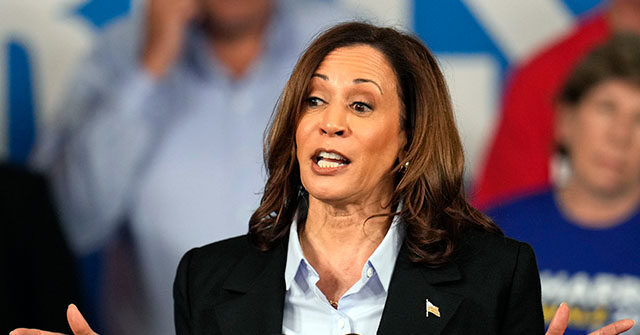Vice President Kamala Harris recently reiterated her stance on not engaging in peace negotiations with Russia without the presence of Ukraine, emphasizing the significance of Ukrainian involvement during an interview with “60 Minutes.” She characterized any agreement between the United States and Russia, as proposed by former President Donald Trump, as tantamount to “surrender.” This underscores the administration’s commitment to Ukraine’s sovereignty and the necessity of including it in dialogues concerning its future and security. Harris articulated a firm position that the U.S. would stand by its ally and ensure Ukraine’s voice is an integral part of any discussions related to its fate, reinforcing the administration’s diplomatic stance in light of ongoing conflicts.
Contrasting this commitment to Ukraine’s engagement in peace discussions, a report surfaced indicating that the Harris-Biden administration is participating in talks regarding a ceasefire in Lebanon, notably without Israel being part of those negotiations. Reports suggest that the discussions involve Iran, a primary backer of the Hezbollah militant group that initiated hostilities in the region. The apparent inconsistency between the administration’s approach to Russia and Ukraine compared to its dealings in the Middle East raises questions about their strategic priorities. While the U.S. seeks to foster a diplomatic resolution in Lebanon, the omission of Israel, a key player in the conflict, indicates a complex and perhaps controversial diplomatic strategy.
The situation escalated when Hezbollah provoked conflict by attacking Israeli communities along the border last October, which has led to increased tensions in the region. In parallel, both President Joe Biden and Vice President Harris issued statements on October 7, advocating for a diplomatic resolution to the crisis despite the absence of Israel in the current ceasefire talks. This situation reflects the intricate dynamics of Middle Eastern politics, where alliances and enmities can shape the course of diplomatic negotiations. The potential ceasefire talks without Israel may be viewed as an effort to stabilize the broader regional conflict, but they raise concerns about sidelining crucial stakeholders.
The covert talks between the United States, Arab states, and Iran aim to achieve a comprehensive ceasefire that would address multiple fronts of conflict simultaneously. Reports indicate that senior officials in Israel have been kept informed about these discussions, though their absence from the negotiations themselves might foster uncertainty or distrust among Israeli leadership. As Iran continues to support Hezbollah indirectly, the inclusion of Iran in ceasefire conversations without Israel could be perceived as an uphill battle for the Harris-Biden administration in maintaining diplomatic relations with its allies while also engaging adversaries.
In addition to the immediate geopolitical implications, the dynamics between the U.S., Israel, and Iran reveal a broader narrative of tension and competing interests in the Middle East. As the U.S. administration navigates this intricate web of alliances and conflicts, the challenge lies in balancing the pursuit of diplomatic agreements while ensuring that vital partners like Israel remain involved in conversations that directly impact their national security.
Overall, Harris’s firm stance on Ukrainian inclusion in peace talks with Russia highlights the administration’s commitment to its ally. However, the simultaneous pursuit of a Lebanese ceasefire without Israel not only complicates the U.S.’s diplomatic approach but also raises fundamental questions about the efficacy of excluding key players from critical discussions. As the situation continues to develop, the administration must carefully manage its foreign policy strategies to uphold alliances and navigate the complexities of an ever-changing global landscape.

